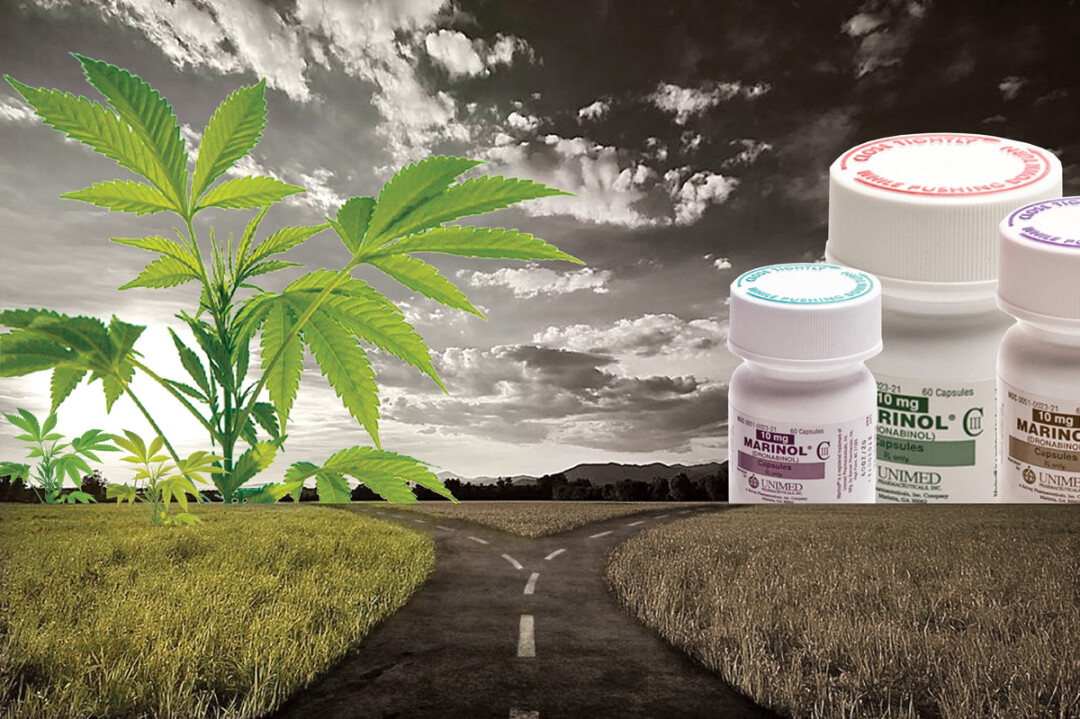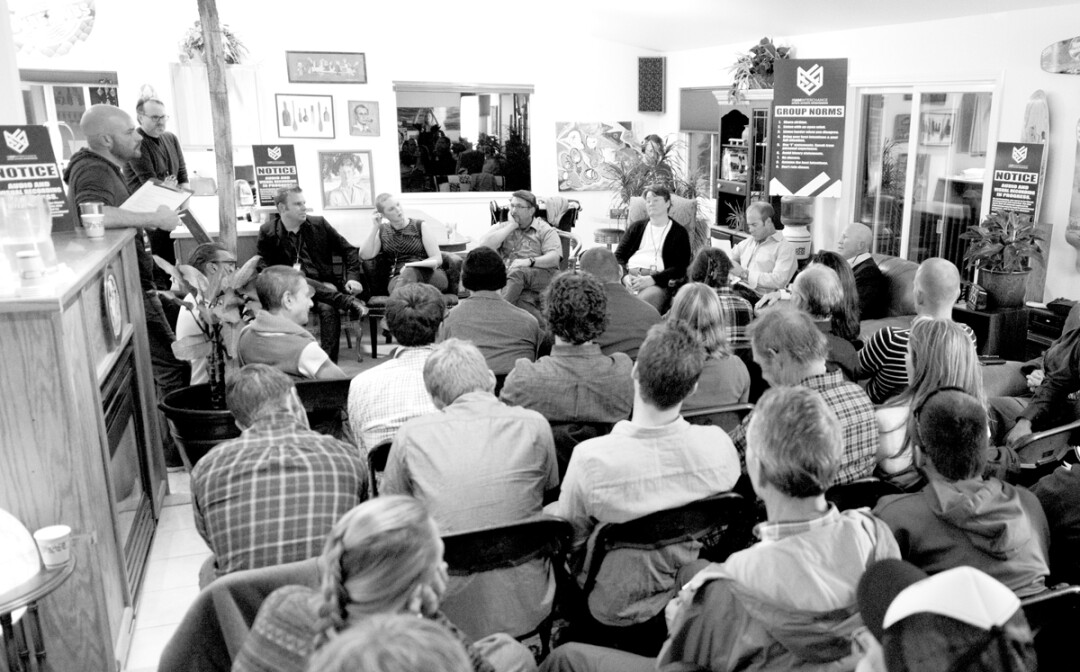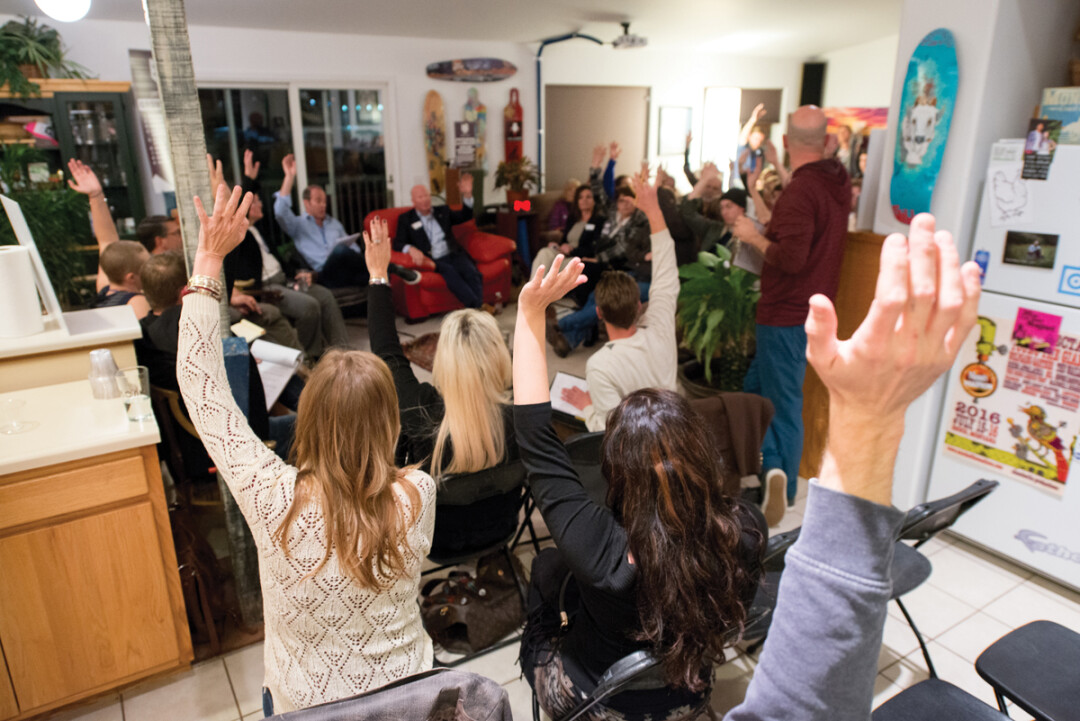A Community Conversation About Cannabis
Listen Harder When You Disagree. Have you ever actually done this? In October 2016, the Interchange Symposium hosted a round table debate concerning cannabis. Six panelists sat in front of a full room of attendees to discuss their positions on the issue, one that will again be voted on by Montanans this November.
Moderator and Interchange founder Tate Chamberlin asked seven questions of the panel; they included: Why are you passionate about this issue? Is cannabis dangerous? Should there be medical regulation and follow up; like with a medical prescription, should you get on and off of cannabis? How does Initiative I-182 fall short? What role does your faith play in this? What role does fear play? And, is there any middle ground to be found?

Outspoken opponent to medical marijuana in Montana, Safe Montana founder and spokesperson Steve Zabawa was present for the conversation. Safe Montana sponsored the 2016 ballot initiative I-176, a failed attempt to repeal the state’s medical marijuana program which did not receive enough signatures to reach the ballot. Throughout the 90-minute discussion Mr. Zabawa intertwined his complex theories on cannabis, or as he calls it “the green stuff”, into the conversation. From full access to medical marijuana in all 50 states, to medical protocol for testing, labeling and training, to fear of “stoning all the kids” Zabawa wove his web of complexities. It is safe to say he was outnumbered by the opposition, those who feel medical marijuana is a safe and compassionate form of medicine. He was interrupted several times by Bob Divine, a medical marijuana caregiver, who took offense to much of the rhetoric of the opposition. Steve Zabawa was called out by several panelists for not using the proper names of substances, and dignifying the conversation by doing so.
The most scientific information of the night was given by Taylin Lange a Marine Veteran who spoke about the endocannabinoid system; a system of the human body having to do with a variety of physiological processes including appetite, pain-sensation, mood, and memory. Taylin argued that cannabis is the safest substance known to man because of the way the human body responds to it. He also pointed out that the basic tenant of any faith is compassion and that I-I82 was designed as a compassionate law providing for the sick and needy people of Montana.
 photo Ben Johnson
photo Ben Johnson
Pulling at our heart strings were Katie Mazurek and Jeannie Brown. Katie is currently being treated by a large team of doctors for breast cancer, but because of the new regulations on cannabis in Montana she does not have a medical marijuana provider as part of her health care plan. As of August 31, medical marijuana providers in Montana are allowed only 3 patients each and are not allowed to charge for their services. Katie is not willing to put her law practice or license in jeopardy by using cannabis, even though former DEA agent Dan Dunlop assured her the DEA is not actively seeking to arrest cannabis users.
Jeannie Brown would love access to a cannabis countermeasure to help relieve seizure activity in her young granddaughter. Jeannie’s granddaughter’s health care choices are also severely limited by the current Senate Bill 423. Parents wishing to register their minor children need a second doctor’s recommendation; they must also submit fingerprints for an FBI background check and agree that the minor will never smoke marijuana and only use infused products. This would all be reasonable for Jeannie, but finding a marijuana-infused products manufacturer with less than 3 patients is certainly impossible.
This impossibility leads to another important topic of debate, grow your own. Those opposed to medical marijuana and “pot shops on every corner” claim a high concern with potency, medical protocol, testing, training, prescribing and handling. Under the current law, those left without a provider under the 3 patient limit can either go without or grow their own cannabis if they choose to do so. This puts cultivation into the hands of laymen and increases the probability of self-prescription, overage, and medical marijuana getting into the hands of those without prescriptions. Growing cannabis is not like keeping a house plant alive; it is a science, and not something a very sick person could actually do on their own. So, if you disagree with marijuana on a medical basis you would certainly disagree with laymen growing it on their own, right?
Another main point of disagreement was how pharmaceuticals should and do play into the cannabis conversation. When a cancer patient (Katie) does not have access to medical marijuana, opiates are prescribed. When her symptoms increase, the dosage goes up and her dependence increases. When veterans (like Taylin) suffering from pain or PTSD do not have access to medical marijuana, opiates are also prescribed. In either instance, drug companies are benefiting and the patients are not.  photo Ben Johnson
photo Ben Johnson
Pharmaceutical companies now have their own marijuana, Marinol, a man-made form of cannabis most often used to treat loss of appetite, severe nausea and vomiting. Cannabis opponents call this true medicine for true patients. A member of the audience pointed out that money is the big issue in the cannabis debate; pharma has taken over our wellness realm and big pharma would stand to lose a lot of money if we grow our own in our backyards. A cannabis caregiver argued that opiates are the gateway drug and that big pharma is killing us and cannabis is not. Taylin Lange pointed out that pharmaceuticals are potentially lethal, unlike cannabis which has never been shown to have killed anyone. Former DEA agent Dan Dunlop argued that no one should drive under the influence of anything, and when motor vehicles are added into the equation traffic accidents and death are likely. Dunlop stressed that “bad players” will always be part of the equation and are intent on exploiting anyone and everyone when it comes to making money. He did not decisively differentiate between medical marijuana caregivers and the narcotics dealers he brought to justice in his 27 years as a DEA agent when referring to “bad players,” but is willing to leave the middle ground of the cannabis issue in the hands of Montana voters.
Still listening? As for middle ground on the topic of cannabis, most everyone on the panel wanted to agree that there is indeed middle ground, but maybe not much. Steve Zabawa wants to make sure the bad apples stay out of the cannabis business; he wants to protect kids from pot shops on every corner and regulate cannabis with prescriptions and warning labels.
Bob Divine sees rescheduling as middle ground and is for regulation, responsibility and accountability. Jeannie Brown wants the choice to use cannabis to be up to the individual. Dan Dunlop believes there may be middle ground, and is okay with letting the voters decide. Katie Mazurek said that the true intent has to be resolution compromise, and she doesn’t see much middle ground. Taylin Lange believes middle ground is not achievable unless all the players are being honest and genuine.
Cannabis in Montana is in the hands of the voters on November 8 and in the hands of the Montana Legislature to create a regulatory
system that works for Montanans into the future. Hear the full podcast recording of the Interchange discussion on cannabis at www.iamInterchange.org


